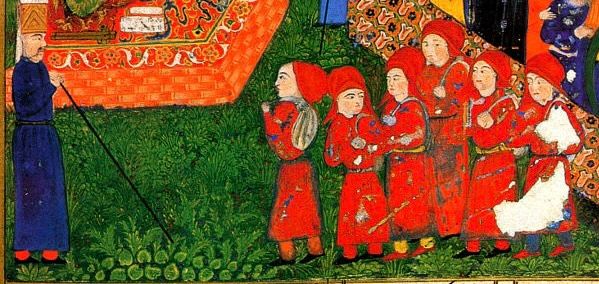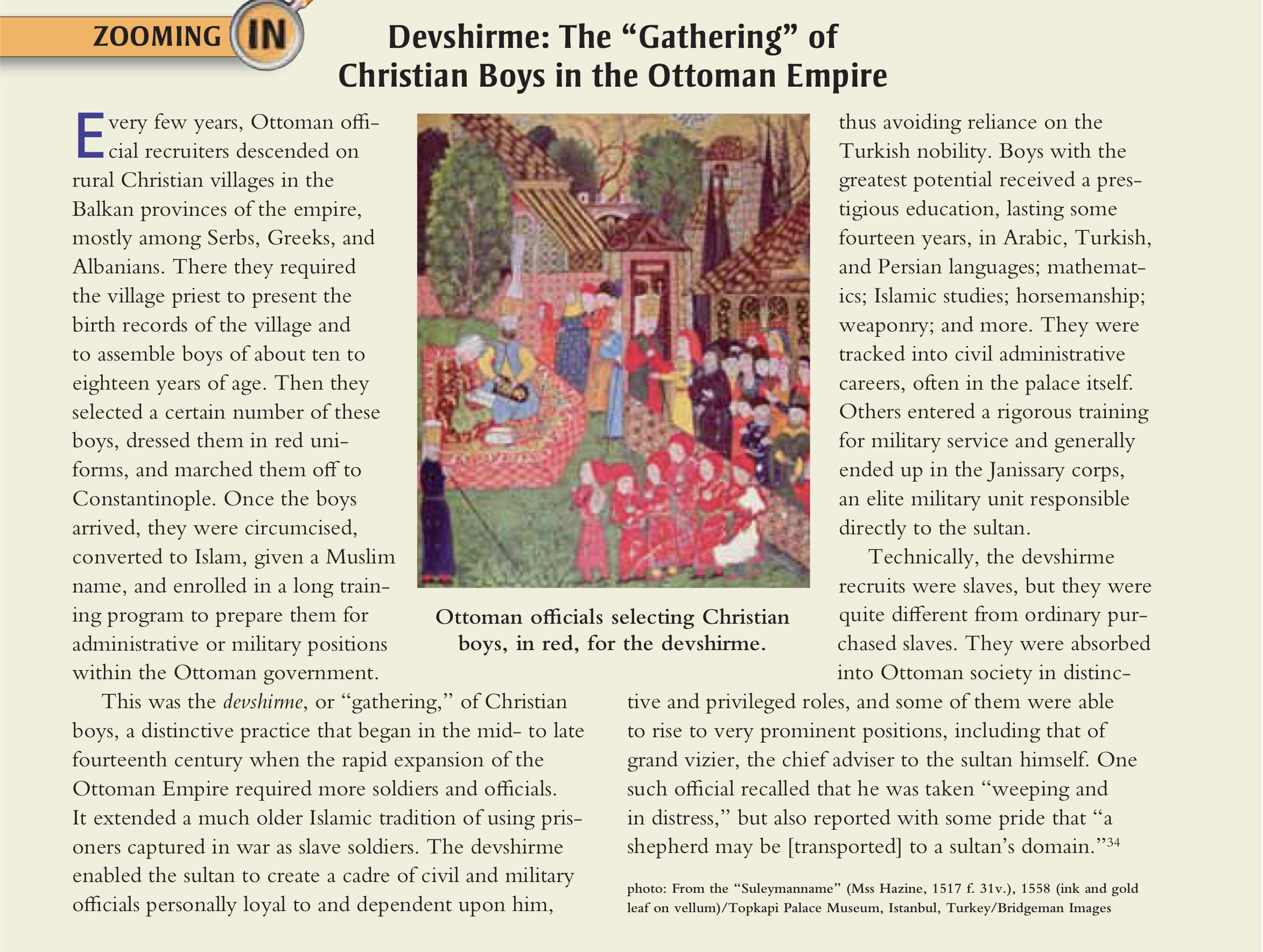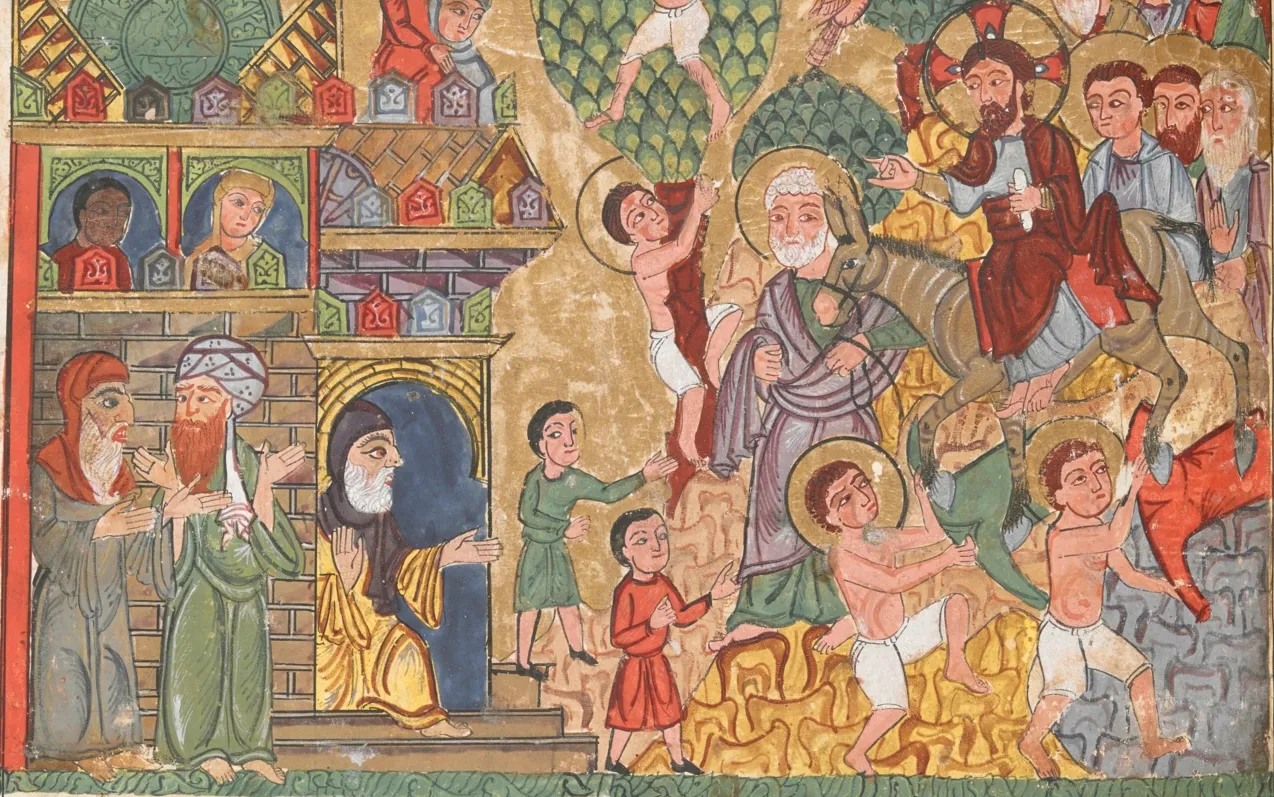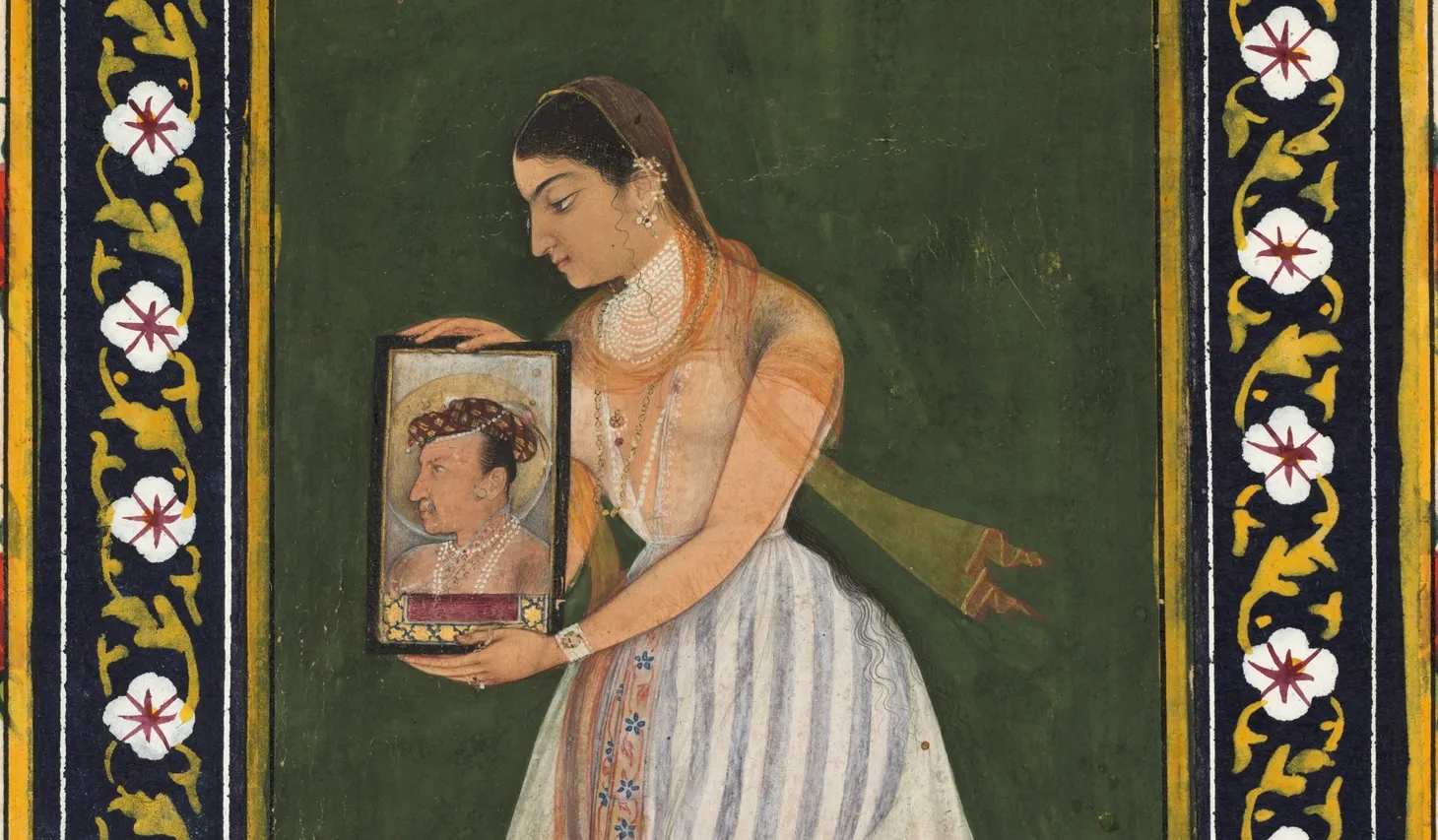“To take lads for the Janissaries”: Making Sense of the Devşirme
A discussion of teaching the Ottoman practice of the devşirme in world history classes.

In my last post, I focused on the Ottomans in the sixteenth century as a genuinely Afroeurasian empire. The choice meant that I didn’t talk about what might be the most common sixteenth-century image from the Süleymanname in world history textbooks: the devşirme. In most textbooks, it’s spelled “devshirme” to help students (and teachers) make sense of that funky ş. I try to keep words in this original language rather than westernizing them. I chose the picture of the execution by an elephant since it was a lesser-known image, and I thought it did a better job at highlighting the Afroeurasian links of the Ottomans.
This post is a little bonus post to reflect on this popular topic in world history classes when it comes to the Ottomans. It seems like every world history textbook focuses on the devşirme (the “Collection.”) Some even have special boxed sections. Given that many of our students are about the same age as the recruits, it’s not surprising that this topic resonates with them. The challenge is how we can help our students analyze the Collection. We want to avoid oversimplifying the issue and emphasize placing the Collection in its relevant historical context.




